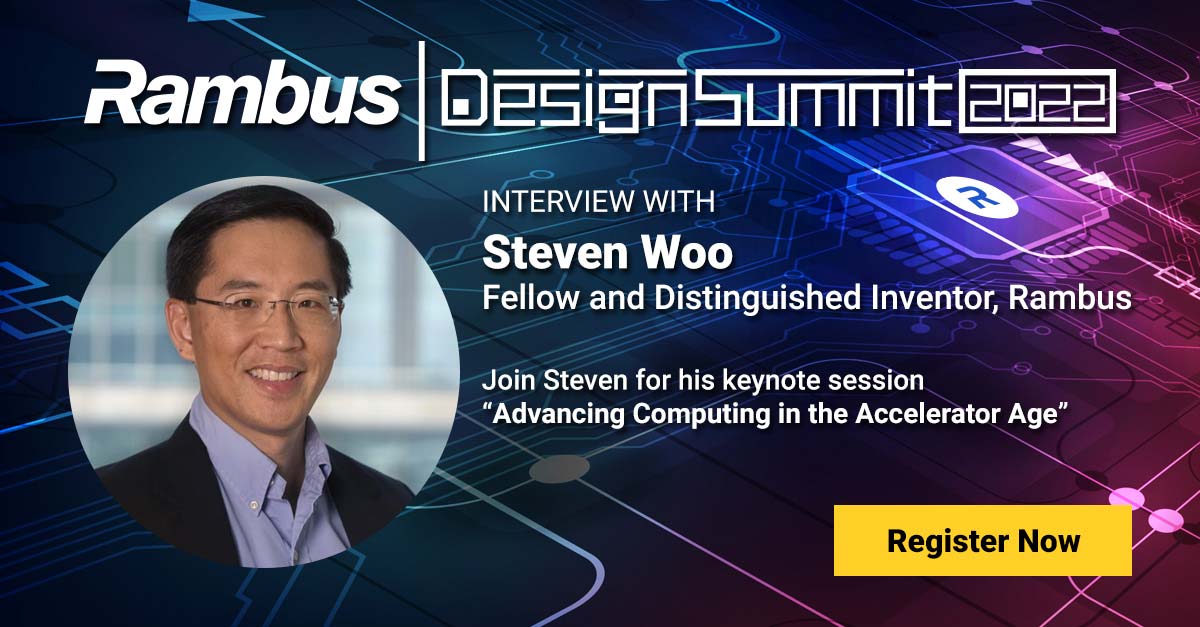Rambus Fellow, Steven Woo, returns to the Rambus Design Summit stage tomorrow, and we are so excited for his keynote: Advancing Computing in the Accelerator Age! In our last interview before the show, we met with Steven to chat about his background, CXL, and some of the biggest challenges for computing in the years ahead.
Read on for Steven’s full interview and don’t forget to register for Rambus Design Summit, happening tomorrow!
Question: Can you tell us a bit about your background?
Steven: My background is in computer architecture, and I’ve done research work in multiprocessor architectures, parallel programming, and neural networks. I’ve always been interested in improving the performance of computer systems, and memory systems are critical to faster computing. I’ve led and worked on several projects here at Rambus pushing DRAM and memory performance in PCs and servers, domain-specific architectures for applications like machine learning, and advanced architectures for near-data processing.
Question: What are you working on at Rambus these days?
Steven:I’m currently working in Rambus Labs, the research organization within Rambus, where I lead a team of senior architects chartered with developing innovations for future DRAMs and memory systems. We get to work on longer-term research projects as well as with our business units on nearer-term programs. There are a lot of interesting challenges for future memory systems, and we’re working on solutions that apply to data centers, mobile computing, and high-performance systems.>
Question: CXL is such an exciting emerging technology – how do you see that impacting the future of data center architecture?
Steven: CXL is one of the most disruptive technologies that’s happened over the last 20 years. It will support emerging datacenter usage models by providing a cache-coherent interconnect for processors and accelerators, we well as memory expansion for applications that process large amounts of data. CXL will ultimately enable higher performance and improved resource sharing, reducing overall cost of ownership.
Question: What do you think are the biggest challenges for computing in the years ahead?
Steven: As the world’s digital data continues to increase, new innovations are needed so that processing can keep up. With performance increasingly limited by data movement, the industry must focus on faster and more power-efficient interconnects and memory systems. Applications and usage models are changing, so system architectures must continue to evolve as well. Accelerators offer new ways to process data more quickly, and resource disaggregation enables higher resource utilization and improved cost of ownership that will influence the direction of computing architectures in the coming years.


Leave a Reply